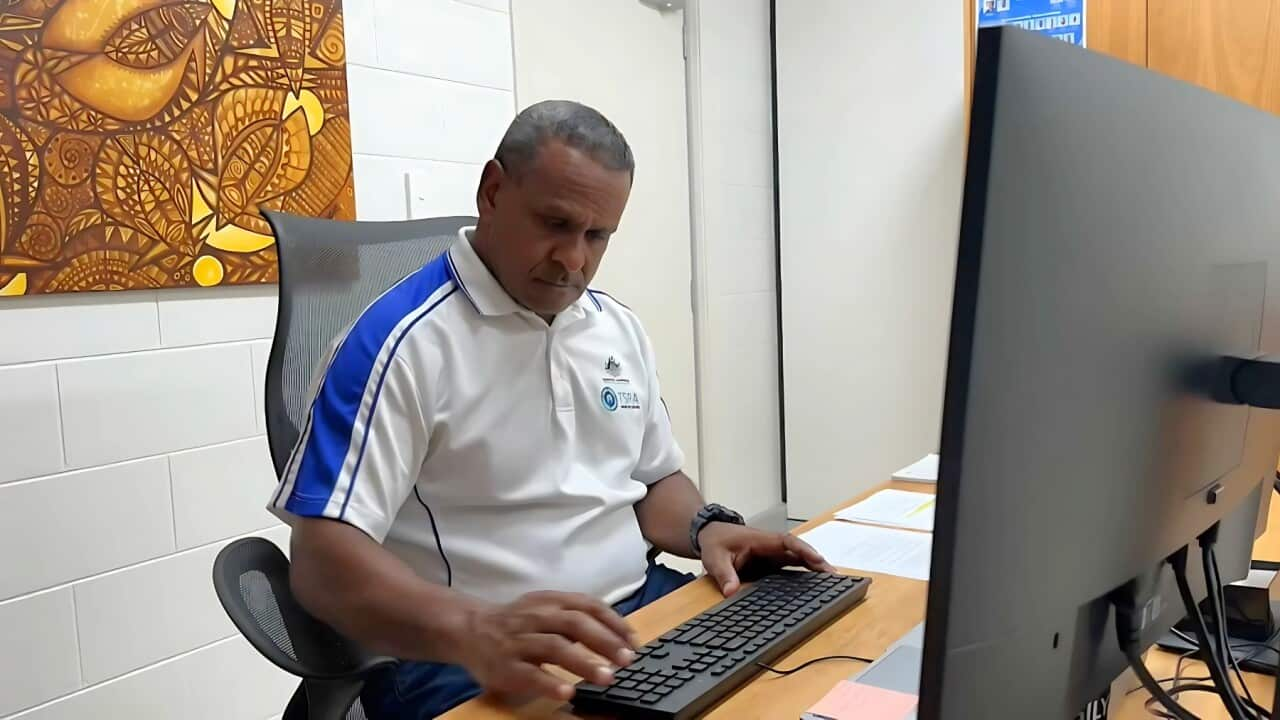TRANSCRIPT
The Labor government is preparing to pass emergency legislation this week amid mounting pressure from the federal opposition over the government's handling of the release of 81 migrants from indefinite immigration detention.
The migrants were released after a landmark High Court decision last week found indefinite detention to be unlawful.
The ruling saw the reversal of a 20 year-old decision in the case of a Rohingya man from Myanmar who faced the prospect of lifelong detention because no country would resettle him, due to a criminal conviction for child sex abuse.
Labor's plans to push through emergency legislation comes after demands from the opposition that both houses of parliament should continue to hold sitting days until legislation is passed.
Foreign Minister Penny Wong has confirmed the government's intentions to introduce legislation in the coming days.
"The legislative or regulatory framework associated with such persons will need to be amended. And the government is working through that. And as I said, the government intends to introduce legislation shortly to further respond to the decision of the High Court. We look forward to the opposition assisting with passage of that legislation as soon as possible."
Deputy Prime Minister Richard Marles has told Channel 9 a legislative response has been under careful consideration by the government.
"All of these people are now on bridging visas right now, with strict conditions being placed upon them. So I don't want people to have a sense that they're able to operate with the kind of freedom that you and I can - there are strict conditions which are being applied to them. We know where they all are, but we're not stopping there, is the point I'm really trying to make and we are looking at what other options are available to us here. And that includes legislative options."
The move comes after a day of fiery debate over the government's handling of the High Court decision.
During question time, opposition leader Peter Dutton said urgent legislation is necessary to address the potential threat posed by those released into the community, who include a number of people with criminal convictions.
Mr Dutton has maintained the government should have been prepared with legislation ready to go before the release.
"We've got a Prime Minister who can't answer the most basic questions in relation to this issue and a minister in Minister Giles, who is completely and utterly out of his depth. There should have been a legislative response to this issue and the government should have been dealing with this in the run-up to the decision being handed down by the High Court. But none of that work has been done."
But Minister Marles says with the High Court yet to hand down the full reasons for its ruling, any legislation drafted without this information would risk being ineffective.
"The High Court still hasn't actually given the full judgement so the precise reasons for the High Court's decision is not out there. And clearly we what we want to do is in any step that we now take, it needs to be legally robust. There's no point in walking down a path which then gets knocked over again by the High Court."
In an animated exchange with Liberal Senator Jane Hume, Minister for Home Affairs Claire O'Neil also rejected the claim the government should have enacted legislation ahead of the release.
Minister O'Neil told Channel 7 the opposition's claims have been fundamentally misleading.
"The idea that it is open to the Australian Government to simply legislate away a High Court decision is not how our constitution works and Jane, I hope to God, actually understands that."
Ms O'Neil defended the government's response to the court's decision, saying community safety has remained the top priority, with a joint operation led by the Australian Federal Police and Border Force established to manage the release.
"We are releasing people under the strictest possible visa conditions. So this includes things like more or less constant update to authorities about the location of people in some instances, in-person daily reporting to authorities, it includes being able to get permission to work in certain types of industries and includes us continuously monitoring things like social media and email addresses and phone numbers and the like."
Labor Cabinet Minister Anika Wells similarly maintains the government has acted as it was required to in accordance with the High Court's ruling.
"At the end of the day, this is the separation of powers. And the separation of powers is there for different jurisdictions to keep checks on each other. And whilst we argued forcibly against this decision by the High Court, and some of the details that you're talking about formed part of our submissions as to why these people should not be released, we have to abide by the decision."
Both houses sit on Thursday and the Senate sits on Friday, which would allow time for a bill to pass this week if the Coalition delivers on its promise of bipartisan support.













